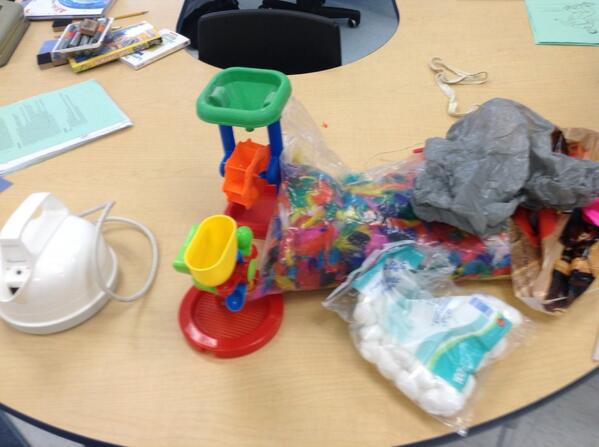Here is what I did:
1) I got a bunch of experiments working on air and water
Center 1: AIR
Center 2: Water

(note: some of these items were for other provocations)
Center 3: Water Cycle
Center #4: Pollution
I then broke them into groups had books and iPads at the centers and asked them what do they observe? Wow, I couldn't believe the talk, the focus, and the engagement. Take a look at this shot:
Here the students were so engrossed in what was happening that they didn't even notice me. They were saying, "cool look its raining!" They were also using the vocabulary that we have been building before this through our watercraft project.
What did I learn?
1) Inquiry (true inquiry) is allowing planned exploration. Students really need time to explore and make observations about the subjects.
2) This takes a lot of planning. I been planning this for some time now (many thanks to my amazing PLN for their help in this). As I have been planning I had to think about questions, get all of the materials ready and even think about possible misconceptions.
3) True assessment. I was amazed at what the students had absorbed through previous books, the Watercraft project and our discussions.
4) Its a lot of fun to watch the joy and engagement of true learning
So if you haven't done provocations before, give it ago. Its a lot of fun and you would be surprised at what you will learn about your students.
Here is the google doc with the Centers we did: https://docs.google.com/document/d/17f_V82QgqQSnWtszetE2_hv0H2NHId3uKUcUkkriTwQ/edit?usp=sharing





No comments:
Post a Comment